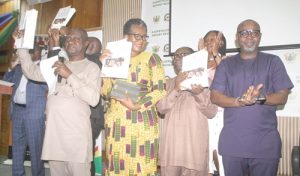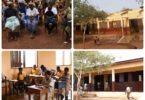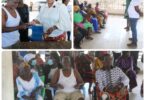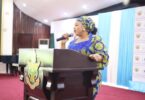
Source: Graphic Online
The National Development Planning Commission (NDPC) has underscored the need to build the capacity of the youth to contribute to the accelerated development of the country.
The commission said investing in the youth, who formed the bulk of the country’s population, would ensure that the window of opportunity for harnessing the demographic dividend did not close on the country.
“About 38.2 per cent of our population are young men and women whose potential must be harnessed for development. It also has an ageing population of about 6.6 per cent whose future wellbeing must be secured,” it added.
The Chairman of NDPC, Prof. George Gyan-Baffour, was speaking at the launch of a report on a 10-year implementation of population activities in the country in Accra yesterday.
It is titled: “Ghana review report on 10 years of the Addis Ababa declaration on population and development (AADPD10), and 30 years implementation of the international conference on population and development (ICPD30).”
Demographic dividend accrues when the productive segment of the population, usually between the ages of 19 and 55 years, form the bulk of the population structure.
With investments in their skills and capacity to work and create businesses, it increases the working population’s productivity, which boosts per capita income.
Prof. Gyan-Baffour, therefore, said failure to take advantage of the dividend could be catastrophic for the country as exemplified by the Arab Spring.
Report
The report catalogues the country’s demographic and socio-economic context and progress made on each of the six pillars of the AADPD, while highlighting the progress made in harnessing the nation’s demographic dividend and SDGs-related population indicators, as well as findings, among others.
The chairman said the goal of financing a youthful population brought into focus key population priorities “we must direct and sustain investment to, in order to attain the dividend”.
Prof. Gyan-Baffour mentioned areas to invest in to include economic development and employment creation, education and skills development, health and productive health services such as family planning, and youth and women’s empowerment.
On sanitation, he stressed the need to step up services, including urban management, emergency preparedness and disaster risk reduction.
The chairman expressed hope that recommendations from the report would be the basis for dialogue between state and non-state actors, government, development partners and CSOs.
He said the NDPC was poised to contribute towards strengthening population governance through financial tracking of current investments, enhance capacity for resource mobilisation and coordination, dialogue with stakeholders and strengthen accountability mechanisms to ensure implementation of recommendations.
Report overview
Presenting the overview of the AADPD10/ICPD 30 report, a Professor at the Regional Institute of Population Studies, University of Ghana, Stephen Owusu Kwankye, said the population of the country had more than quadrupled over the past 61 years, increasing from 6.7 million in 1960, to 30.8 million in 2021.
He said the population was projected to double within 33 years at the current growth rate of 2.1 per annum, adding that this may have dire consequences for the sustainable development of the country.
Touching on dignity and equality which was one of the seven thematic areas of the report, Prof. Kwankye said although some progress had been made, there was the need to establish a comprehensive national data collection system focused on gender-based violence.
He also called for the passage of the Affirmative Action Bill into law to address gender inequality.
The Country Representative of the UNDP, Dr Wilfred Ochan, commended the NDPC for preparing the report which he said was participatory and inclusive.
Recommendations
The report recommended that institutions of state should be strengthened, while CSOs and NGOs must be supported to reduce the incidence of gender-based violence.
It also called for the establishment of friendly rehabilitation centres to cater for the peculiar needs of people with disability, mental health patients and the aged, among others.
Source: www.graphic.com.gh








